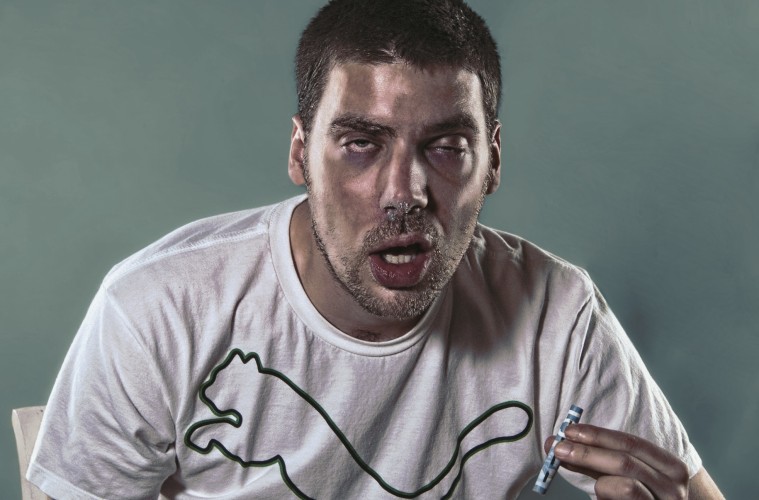PSEUDO-EMOTIONS & SUPPRESSED EMOTIONS IN THE ADDICT & TRAUMA OR ABUSE VICTIM.
- Peter Weisz
- Apr 25, 2019
- 8 min read
Definition of Trauma. Psychological trauma is a type of damage to the psyche that occurs as a result of a distressing event or events. Trauma is often the result of an overwhelming amount of stress that exceeds one's ability to cope, or integrate the emotions involved with that experience.
PSEUDO-EMOTIONS:
Masquerading around the lives of addicts and trauma or abuse victims are pseudo-emotions - seducing these persons to call them “emotions,” to think of them as real emotions and to respond to them as if they were actually “emotions”. These masquerading false-emotions plague their lives and those of their loved ones. And what makes them so tricky and so difficult to catch is that they can be created in a moment, in a nanosecond.
Now it is true that with most of these pseudo-emotions, there is an actual emotion lurking somewhere within. Yet that’s the problem, while there is a real emotion present, it is supressed, covered-up and ignored, and the pseudo-emotion is given prominence. Now we have two problems. First, the person doesn’t know or is unaware of the real emotion and is are over-invested and confused by the presence of the pseudo-emotion, mistakenly thinking that it is the actual emotion.
Many addicts, or trauma & abuse victims have great difficulty in identifying REAL emotions.
Now to create one of these pseudo-emotions in a mere moment of time, all you have to do is to start a sentence with the words, “I feel . . .” Then to complete the deception, just add a judgment.
· “I feel put off by her.”
· “I feel offended by his foul mouth.”
· “I feel low self-esteem.”
· “I feel mediocre.”
· “I feel defeated by all this talk of what we cannot do.”
· “I feel stupid when he takes-over in the meeting when I am talking.”
· “I feel that you don’t listen to me.”
And the list goes on and on and on. I feel defeated, like a failure, ugly, beautiful, stupid, like a winner, triumphant, inadequate, dominated, cheated, silly, like a kid, etc. Yes, these are pseudo-emotions and, as pseudo-emotions, they deceive the person into thinking they are experiencing or working with an actual emotion when they are not. In this format, they have made a judgment or evaluation and framed it with the words “I feel . . .” but have not identified an actual emotion or a feeling. They have only shared a judgment.
In truth, there are very few “real” emotions – and these are all based around either fear, sadness and anger at one end, or calmness, joy and happiness at the other.
SUPPRESSED EMOTIONS: Now there is undoubtedly a real suppressed “emotion” down underneath the judgment. When you say something like: “I feel judged.” “I feel mediocre.” “I feel put down.” It is likely that you are feeling the emotion of frustration or anger. Or it could be fear or stress. There will be some hard to bear emotion that reflects something about your world that isn’t working well. But instead of identifying the emotion, getting in touch with it and dealing with it, you have judged the experience and then deceived yourself, thereby creating a pseudo-emotion.
Recovery from addiction, trauma or abuse means learning how to identify one’s true emotions. Since the addict began using mind altering substances as a method of coping with feelings that were too difficult to bear, or the trauma or abuse victim learnt to subconsciously shut down normal emotional responses, many true emotions become suppressed, and the person continues carrying and adding to this great weight of suppressed emotions until life becomes unbearable. The goal of recovery is to be able to let go of these damaging pent-up emotions.
Guilt, shame, sadness, fear and anger are hard to bear emotions and a person may learn ways not to admit to these emotions by avoiding them, minimizing, justifying, blaming, or becoming delusional.
Some examples:
· “I know I threw up over my boyfriend’s shoes, but I was just having a good time and overdid it a bit”. (justifying & minimizing guilt).
· “Yes, I know I was a bit high, but I didn’t really say anything that embarrassing or stupid”. (minimizing shame).
· “Yes, I may have been a bit drunk, but you made me really angry by suggesting that I was behaving like an idiot, in front of all my friends”. (minimizing guilt, blaming others).
· “Yes, I know he hasn’t paid me back the money he owes me from 6 months ago yet, but look…he needs it more than me and I’m not really annoyed with him”. (being delusional and avoiding anger).
· “Yes, I know he raped me, but I’m not the only one that these things happen to”. (minimizing, avoiding and justifying anger)
· “Yes, I know he beat me, but I was a bad kid and maybe I deserved it”. (justifying anger)
· “I saw my wife drown, but how can I be angry at God?” (minimizing, justifying, avoiding anger and sadness)
· “Yes, I killed that child when I hit her with my car, but she ran into the road”. (minimizing and justifying guilt)
· “Yes, I was raped repeatedly and beaten as a child but I should be strong enough by now to deal with it all”. (being delusional about anger, minimizing fear)
· “If only my parents would listen to me, I wouldn’t need to drink”. (blaming others, being delusional)
· “If only my wife showed me more affection I wouldn’t need to sleep around”. (justifying guilt and shame, blaming others)
· “I can’t remember anything about last night. Woke up in some strange guy’s bed! Must have been a great evening!” (being delusional about fear and shame)
· “OK, I was a bit drunk and I screamed at my wife, but she was provoking me”. (justifying guilt, blaming others)
Plus hundreds of other examples that you could probably think of.
One of the causes of addiction, is learning to use mind-controlling substances as a means of coping with overwhelming emotions resulting from trauma or abuse, or learning to find satisfaction or distraction in things outside of oneself, because one does not, on some level, feel “good enough” and does not have the capacity to “self-soothe”. Addictions can range from shopping to gambling, money, pornography & sex, stealing, people (co-dependence), food, gaming, TV, social media and many others. These may work for a while, in helping a person to be temporarily free from difficult emotions, but will ultimately make the problem much worse, by serving only to suppress these emotions further. This is because all of these behaviours come under the heading of Obsessive-Compulsive Disorders. The person becomes obsessed with a thought of engaging in addictive behaviour and then has the compulsion to act out, which is the only way to quell or control the obsession. However, after shorter and shorter intervals, the obsession returns and the cycle is repeated. The relief gained, also becomes shorter and shorter - and the OCD and addiction becomes worse.
Self-mutilation is also an addiction. A person will harm themselves intentionally either as a form of self-punishment or because the physical pain will deflect from the emotional pain, or in many cases the physical discomfort seems to be extremely minimal compared to the emotional pain. A person may also self-harm as a means of control. It validates the fact that they have control over what they can do to their body externally, because it is impossible for them to control or release their internal emotions.
All of the above behaviours will increase the production of the chemicals Serotonin and Dopamine in the brain. These are sometimes referred to as “The happy hormones”. There will also be a rush of endorphins and adrenaline in the body, giving a feeling of excitement, which is why addictive behaviours make a person feel happy. But it is only temporary. In simple terms, a person will need more and more of their “drug” to feel that hormone rush, as a tolerance is built up. The brain can only produce so much of these chemicals and in time, a person will simply no longer be able to get high.
If a person does not heal properly and continues to suppress emotions, it is very likely that this will have serious consequences on their lives. They may become clinically depressed, which is a debilitating condition, or have spontaneous misplaced angry outbursts and then feel terribly guilty afterwards. This is anger that has been kept inside for a long period of time which needs to be released, but it is often thrown at the wrong person, for the wrong reasons, at the wrong time or in the wrong place. They may develop extreme mood swings, hyper-anxiety, panic attacks or even full-blown Bipolar disorder. They may have difficulty in making decisions or becoming motivated about anything in their lives, feeling tired and lethargic and almost always having abnormal sleep patterns. They may feel a great sadness surfacing which causes tears to flow – for no apparent reason. Their close relationships will be affected due to trust or self-esteem issues.
There may be thoughts of suicide – and in some cases a person will resort to taking their own life as the only means of escaping the underlying anxiety, fear, hopelessness, misery, anguish, despair and confusion which they live with on a daily basis.
Suppressed emotions can also cause a number of psychosomatic physical illnesses and most definitely will increase levels of daily stress. Stress can cause heart, blood pressure and respiration problems, a number of gastric complaints, allergies, migraines, seizures, neuropathy (nervous system problems), suppression of the immune system, muscular cramps and general fatigue. High levels of stress have also been linked to conditions such as fibromyalgia and even certain types of cancer.
Healing begins with letting all these long-term buried emotions out. How is this done?
To date, the most successful form of treatment, is personal therapy. Clinics, treatment centres and rehabs are only the beginning. It is a grave mistake to think that one can spend 3 weeks or even 3 months in a treatment centre and be cured. It is often the case that a person simply does not receive enough individual attention in these institutions and without ongoing support, their “recovery” will be short lived. With most addicts, or trauma or abuse victims, emotions have been suppressed for many years – and it may take a while to begin to be able to function normally again to the point where one can cope with life’s daily challenges in a rational and sensible manner and start to feel good about themselves.
The therapeutic healing process cannot be rushed, as the brain needs time to “re-adjust” from learned and habitual self-defeating and dangerous behavioural patterns. The amount of time needed will depend on the severity of the person’s condition, plus their willingness to open up and interact with their therapist.
The most important criteria in order to begin the process of recovery, is that the person must decide for themselves that they need help and not be forced into treatment. It is important also, to find the right therapist. This may not be the first therapist you see. The right therapist for you will be the one who you feel can listen to you and hear you, understand you and empathize with you and come up with solutions and suggestions which you feel are sensible, helpful and meaningful.
pressed emotions that have built up throughout their lives and be able to release them by being brutally honest with themselves and the therapist - willing to share even their darkest moments. The therapist will help the client avoid the pitfalls of sinking into self-pity, or remaining locked into anger, which in themselves can lead to serious depression and anxiety. A person will undergo an intrinsic personality change for the better, feel more confident, be rid of past demons, feel calmer and more serene and slowly free themselves from these deep and damaging emotions which have caused havoc in their lives. to recognize the suppressed emotions that have built up throughout their lives and be able to release them by being brutally honest with themselves and the therapist - willing to share even their darkest moments. The therapist will help the client avoid the pitfalls of sinking into self-pity, or remaining locked into anger, which in themselves can lead to serious depression and anxiety. A person will undergo an intrinsic personality change for the better, feel more confident, be rid of past demons, feel calmer and more serene and slowly free themselves from these deep and damaging emotions which have caused havoc in their lives.
Written work is often a necessary part of the therapeutic process and must not be dismissed as unnecessary. A good therapist will guide you with your written assignments, but to belittle this part of the treatment process will mean that proper healing will not take place. It is ESSENTIAL that written work is done as suggested by the therapist. The more willing the client – the better the outcome will be.
L. Michael Hall Ph.D.
Peter Weisz Dip. HND BACP































Comments